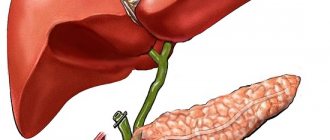loose stool
diarrhea
nausea
intestinal infection
The group of intestinal infections, most often developing in childhood, includes a whole list of diseases caused by bacteria and viruses. Most often, intestinal infections are diagnosed in children of preschool and primary school age, but adolescents are also at risk. The danger of most intestinal infections in children is that they can cause dehydration. Loss of fluid is dangerous not only for health, but also for life.
general information
The group of intestinal infections characteristic of childhood includes diseases of a bacterial and viral nature, accompanied by signs of general intoxication of the body and dehydration. In terms of frequency of occurrence, intestinal infections are in 2nd place after ARVI and influenza. The adult body is less susceptible to infectious pathogens that cause digestive disorders. Intestinal infections are most severe in infants. In this case, not only dehydration is observed, but also symptoms such as dysbiosis, a sharp decrease in body weight, deficiency of pancreatic enzymes and decreased immune defense.
Causes
The list of bacterial and viral pathogens of intestinal infections in children has a wide range. In 80% of cases, characteristic digestive disorders develop when gram-negative enterobacteria enter the gastrointestinal tract. Such bacteria include Salmonella, Shigella, Escherichia, Staphylococcus, Proteus, Clostridia. Among viral pathogens, rotaviruses, adenoviruses, and enteroviruses are more common. When they enter the lumen of the gastrointestinal tract, bacteria and viruses release enterotoxins during their vital activity, which are the main cause of the development of pronounced clinical symptoms.
Infection occurs through the fecal-oral route, through unwashed hands, through the use of dishes and cutlery of an infected person, through the consumption of poor-quality water, as well as insufficiently thermally and hygienically processed food. With weakened immunity, digestive disorders can occur under the influence of opportunistic microflora located in the lumen of the large intestine. In the summer, salmonellosis and dysentery are more often diagnosed. In winter, there is a peak incidence of rotavirus infection.
Catarrh of the intestines (enteritis, early 20th century)
Qatar of the intestines
or
enteritis
(lat.
catarrhus intestinalis
) - inflammatory damage to the intestinal mucosa. “Qatar” literally means inflammation. This article discusses the problems of enteritis from the perspective of medicine of the late 19th – early 20th centuries. At this time, enteritis was called inflammation of the mucous membrane of not only the small intestine, but also the large intestine. Due to the lack of modern equipment at that time (endoscopes, X-ray diagnostics, ultrasound, pH measurements), it was quite difficult to distinguish catarrh of the intestines from catarrh of the stomach. For a modern interpretation of this disease, see the article “Enteritis.”
The term “intestinal catarrh” appears in the official version of the International Classification of Diseases ICD-10. Intestinal catarrh is classified in “Class I. Some infectious and parasitic diseases”, block “A00-A09 Intestinal infections”, heading “A09.0 Other and unspecified gastroenteritis and colitis of infectious origin”.
Enteritis in the Brockhaus and Efron dictionary
Enteritis
means
inflammation of the intestines . Inflammation can affect all three layers of the intestinal wall (mucosal, muscular and serum), but most often it affects only the mucous membrane. Inflammatory changes on the intestinal mucosa, as well as on other mucous membranes, can be catarrhal, diphtheritic, purulent, ulcerative, etc.
| V.M. Ostrovsky, author of the article “Enteritis” in ESBE |
The most common form of the disease is catarrhal enteritis, or simply catarrh of the intestines. Of the various parts of the intestine, the large intestines are more often affected by catarrh than the small intestines; however, with more or less prolonged existence of enteritis, the process spreads to different parts of the intestinal tract. A distinction is made between acute or transient and chronic or protracted enteritis. Chronic in most cases develops from acute due to the fact that either the etiological moment has not been eliminated and continues to act, or catarrh has fallen on a weakened body and has taken a protracted course. Enteritis can represent independent diseases (primary, idiopathic enteritis) or they accompany other diseases, for example. liver, kidneys (secondary, symptomatic enteritis). The causes of intestinal catarrh are errors in diet, excessive consumption of food and drink, frequent consumption of irritating substances (pickles, soy, alcohol, etc.), consumption of spoiled foods, too cold or hot food, and insufficient chewing of the latter. Acute enteritis is especially common in the hot season, due to spoilage of food supplies, mainly in children due to the decomposition of the milk they consume; this catarrh often spreads epidemically, in which case it is assumed to have an infectious origin; in its rapid course it resembles cholera, hence its name “childhood or summer cholera.” Further, enteritis can develop under the influence of a cold, for example, due to cold swimming with a sweaty body, due to lying on damp ground. Toxic (poisonous) enteritis develops after ingestion of highly irritating toxic substances (acids, alkalis, arsenic, sublimate); This also includes acute catarrh of the intestines due to the abuse of laxatives. Among the mechanical causes of enteritis, habitual constipation should be mentioned; Stagnant feces harden and irritate the intestinal wall, like a foreign body. Intestinal worms probably have a similar effect. In some chronic enteritis, ciliates ( cercomonas
and
trichomonas intestinalis
) and amoebas are found in the intestinal contents. Chronic enteritis can develop due to stagnation of blood in the veins of the intestinal tract; Such congestive catarrhs of the intestines are observed in diseases of the liver (cirrhosis, etc.), kidneys, heart, lungs, and abdominal tumors. Often chronic diseases of the intestines themselves (cancer, tuberculosis, hemorrhoids) are accompanied by enteritis. — Symptoms of enteritis vary depending on the location and intensity of the process. With the predominant participation of the large intestines (enterocolitis), diarrhea comes to the fore. With catarrh of the small intestines, there may not be diarrhea; with chronic enteritis, stools are abnormal, constipation is replaced by diarrhea. The frequency of bowel movements during diarrhea varies widely (from 2 to 20 per day). Due to the decomposition of the contents of the intestines, gases with a rotten odor develop in copious amounts, the abdomen swells (flatulence, tympanitis); stool is liquid, putrid odor, gray-yellow or brownish in color, often mixed with mucus. The reaction of the stool is mostly acidic. Microscopic examination reveals undigested food debris (muscle fibers, vegetable particles), exfoliated epithelial cells, cholesterol crystals, fat droplets, often yeast cells and many bacteria; However, specific microorganisms have not yet been isolated. Another common symptom of enteritis is pain, especially in the form of colic, which often precedes an increased urge to ventilate; with catarrh of the small intestines, pain is concentrated mainly in the navel and in the anterior lower abdomen, with damage to the large intestine - from the sides and in the hypochondrium. Catarrh of the duodenum can be recognized only when, due to the involvement of the bile duct flowing into it, so-called catarrhal jaundice develops. With acute enteritis, the temperature sometimes rises, especially often in young children; thirst is almost always increased due to significant loss of water through feces; urine is excreted in reduced quantities, it is saturated and gives a brick-red sediment. The duration of acute enteritis ranges between several days and 2–4 weeks; in adults it usually ends in recovery; for infants and the elderly it is a very dangerous disease. Chronic catarrh of the intestines can last for years, and sometimes for a lifetime. Without directly threatening life, it represents a persistent and painful illness; patients with enteritis lose more and more weight and gain a gray, sallow appearance; they sometimes suffer from dizziness, often palpitations, asthmatic attacks, and often hypochondriacal mood; All; This phenomenon is explained as the consequences of self-poisoning (autointoxication), which is caused by the absorption of decomposition products from the intestines. — It is also worth mentioning a special form of chronic enteritis, which is known as “membranous” (enteritis membranacea) and is characterized by the fact that in patients with attacks of unbearable pain, white membranes, ribbons consisting of mucus, are excreted with feces. This disease is observed in nervous subjects, mainly in hysterical women; Most authors see in it not catarrh, but a separative neurosis of the intestines. Prevention of enteritis follows from its etiology. Treatment consists mainly of regulating the diet, first removing the decomposed contents of the intestines with a laxative (castor oil, calomel) and then calming the peristalsis of the intestines with opium and various astringents. For prolonged catarrh, high medicinal infusions into the intestines and mineral waters (Carlsbad, Kissingen, etc.) are useful.
Source - Encyclopedic Dictionary of Brockhaus and Efron, volume XLa (1904). The author of the article is V.M. Ostrovsky
.
Catarrh of the intestines and A.P. Chekhov
A.P. Chekhov diagnosed himself with catarrh of the intestines, catarrh of the rectum (catarrh recti) and hemorrhoids. Here are fragments of his letters:
- 7.4.1887 N.A. Leikin: “... There is only one problem: gastrointestinal catarrh from changing water and food. I run every now and then. And the water closets are here in the yard, in the middle of nowhere... By the time you get there, you will have time to be exposed to many unpleasant accidents. ..."
- 14.4.1887 by Chekhov: “... My intestinal catarrh continues to carry me from the room to the hot place and back. ..."
- 25.4.1887 by Chekhov: “...The catarrh of the intestines left me from the very moment I left my uncle. ..."
- 10 or 11.1.1888 Al.P. Chekhov: “...I have catarrhus intestinalis. ..."
- 13/14/1988 I.L. Leontiev (Shcheglov): “...When I read Moscow chronicles, theater announcements, announcements, etc. in the newspaper, then all this seems to me something like catarrh, which I have already experienced...”
- 21.1.1899 I.Ya. Pavlovsky: “...My health is a little better than on the day when we were together at the vernissage. I was exhausted then. And it wasn’t the bacilli that bothered me so much as the intestinal catarrh. From this catarrh I lose in one day what I gain in a month. ..."
- 10.3.1899 M.P. Chekhova: “...Again I have catarrh of the intestines, and I have become a little thin; Napoleon I had exactly the same type of catarrh, who during battles listened to his adjutants and gave orders in a very indecent pose. ..."
- 10.3.1899 M.P. Chekhova: “...My (intestinal) catarrh has calmed down. ..."
- 10/11/1899 G.I. Rossolimo “... Among other things, I have hemorrhoidal cones, recti catarrh - and there are days when I am simply exhausted from frequent urges. We need to do an operation...”
- 10/16/1899 A.I. Urusov “...The bacilli have faded into the background, now I have to deal with hemorrhoids and catarrh of the intestines, which exhausts me and gives me a fasting expression. ..."
- November 2, 1899 P.I. Kurkin “...Qatar recti calmed down a little. ..."
Back to section
Varieties
For developmental reasons, intestinal infections in children are classified into the following types:
- salmonellosis;
- dysentery;
- Escherichiosis;
- yersiniosis;
- rotavirus infection;
- campylobacteriosis;
- staphylococcal intestinal infection.
There are also acute, protracted and chronic phases of intestinal infections. The duration of the acute phase is no more than 1.5 months. The protracted phase lasts more than 1.5 months, and the chronic course of the infectious process drags on for a period of up to six months.
Catarrh of the stomach is a disease from freethinking and pride (A.P. Chekhov)
Catarrh of the stomach
- literally "inflammation of the stomach." The Great Soviet Encyclopedia says that “gastric catarrh” is an outdated name for gastritis. However, this does not correspond to modern ideas.
In the 19th century, a distinction was made between acute and chronic catarrh (see article from ESBE below). Gastritis is also divided into acute and chronic. And, if the diagnosis of “acute gastritis” made in the 21st century corresponds to the diagnosis of “acute catarrh” of the 19th century, then in relation to the chronic form this is not so. According to modern concepts, “chronic gastritis” reflects morphological changes in the gastric mucosa, and a complex of symptoms, including pain and discomfort (a feeling of heaviness in the epigastric region), early satiety, nausea, belching, heartburn, that is, what in the 19th century was called “chronic “catarrh” is “functional dyspepsia” (Sheptulin A.A. Chronic gastritis and functional dyspepsia: is there a way out of the impasse?). In the 19th century there was neither gastroscopy nor other direct methods for examining the condition of the gastric mucosa, without which today the diagnosis of “chronic gastritis” is impossible. Thus:
- “acute catarrh” is a modern “acute gastritis”
- “chronic catarrh” is a modern “functional dyspepsia”
Due to the lack of modern equipment at that time (endoscopy, X-ray diagnostics, ultrasound, pH-metry), it was quite difficult to distinguish gastric catarrh from intestinal catarrh (enteritis).
Catarrh of the stomach - article in the Brockhaus and Efron dictionary
“Stomach catarrh - acute and chronic;
if it is caused by a general infection, poisoning by putrefactive decomposition products, it is also called gastric fever or gastricism. The causes of acute catarrh of the stomach are irritations: mechanical (coarse, hard or finely ground food), thermal (too hot or cold drinks) and chemical (poisons, alcohol, strong spices, more or less decomposed foods). In addition, general nervous weakness (nervous dyspepsia) and special weakness of the digestive ability of the stomach should also be considered as causes. In the origin of chronic catarrh of the stomach, the first place is occupied by the abuse of alcoholic beverages, followed by the causes listed below, and then general suffering of the liver, heart and lungs. Seizures: lack of appetite, thick coating on the tongue, dry mouth, fullness and tightness in the pit of the stomach, nausea, sometimes vomiting; all this is often accompanied by headache, reluctance to work and fever. With chronic catarrh of the stomach, the same attacks occur, only they are less severe and violent. Treatment of acute gastric catarrh requires a strict diet, sometimes even fasting and limiting drinking. Usually, in the morning and evening, tea with a small amount of milk and crackers, and at noon - slimy soup; For drinking, seltzer water or Apollinaris with red wine is suitable. Among medicines, hydrochloric acid and natural Carlsbad water are very useful. When treating chronic catarrh of the stomach, it is very important to maintain a correct lifestyle, avoiding late dinners and heavy libations; should not consume all sour, salty, fatty and spicy foods. From alcoholic beverages, light red or white wine is allowed, pure or diluted with alkaline mineral waters; The following foods are allowed: simple (non-flour) soups, dairy dishes, soft-boiled eggs, veal brains, ham, young poultry (except duck and goose), steak, roast beef; fried lean veal; of fish - pike and trout; instead of bread - crackers. With this dietary regimen, many chronic catarrhs of the stomach go away; for severe and persistent forms, the best and surest remedy is daily gastric lavage. Among laxatives, Carlsbad, Kissingen, Marienbad, Vichy and others are appropriate.” Source - Encyclopedic Dictionary of Brockhaus and Efron (1895), author of the article B.A. Ochs (1851–1926) - doctor, editor-publisher of the newspapers “Paramedic” and “Medical Life”.
Catarrh of the stomach is a disease from freethinking and pride (A.P. Chekhov)
In Chekhov's works, “stomach catarrh”, as a characteristic of characters, appears repeatedly.
Siren
“... The remaining honorable, flabby, heavily breathing fat man, and the prosecutor’s comrade, a young German with a catarrhal face, sat on the sofa and waited for the chairman to finish writing so that they could go to dinner together.
In front of them stood the secretary of the congress, Zhilin, a small man with sideburns near his ears and an expression of sweetness on his face. ... The secretary sighed and, bending down to the ear of a fellow prosecutor, continued in a low voice: “Pike perch or carp with a sauce of tomatoes and mushrooms is also good.” But you can’t get enough of fish, Stepan Frantsych; This is unimportant food, the main thing in lunch is not the fish, not the sauces, but the roast. Which bird do you adore more? The prosecutor's comrade made a sour face and said with a sigh: “Unfortunately, I cannot sympathize with you: I have catarrh of the stomach.” - Come on, sir! Doctors invented catarrh of the stomach! This disease comes more from freethinking and pride. Don't pay any attention. Let’s say you don’t want to eat or feel sick, but don’t pay attention and eat for yourself. If, let’s say, they serve a couple of great snipes with the roast, and if you add to this a partridge or a couple of fat quails, then you’ll forget about any catarrh, my word of honor. What about roast turkey? White, fat, juicy, sort of, you know, like a nymph... “Yes, it’s probably delicious,” said the prosecutor, smiling sadly. — I would probably eat turkey. - Lord, what about the duck? If you take a young duck that has just had enough ice in the first frost, and fry it on a baking sheet along with potatoes, so that the potatoes are finely chopped, so that they are browned, and so that they are saturated with duck fat, and so that... ... - Yes, perhaps I I’d like to eat duck…” the comrade prosecutor sighed…”
A.P. Chekhov. Siren. Story. 1887
From the diary of an assistant accountant
1863 May 11.
Our sixty-year-old accountant Glotkin drank milk with cognac because of a cough and fell ill with delirium tremens on this occasion. The doctors, with their characteristic self-confidence, claim that he will die tomorrow. Finally I will be an accountant! This place has been promised to me for a long time.
Secretary Kleshchev will go to trial for beating a petitioner who called him a bureaucrat. This appears to have been decided.
I took decoction for stomach catarrh.
1865 August 3.
Accountant Glotkin's chest hurt again. He began to cough and drinks milk and cognac. If he dies, then the place will remain with me. I have hope, but a weak one, because, apparently, delirium tremens is not always fatal!
Kleshchev snatched the bill from the Armenian and tore it up. Perhaps the matter will go to court.
One old lady (Gurievna) said yesterday that I don’t have catarrh, but hidden hemorrhoids. It may very well be!
1867 June 30.
In Arabia, they say, there is cholera. Perhaps he will come to Russia, and then many vacancies will open up. Perhaps old man Glotkin will die and I will get a job as an accountant. A tenacious man! To live so long, in my opinion, is even reprehensible.
What should I take for catarrh? Should I take the citvar seed?
1870 January, 2.
A dog howled all night in Glotkin's yard. My cook Pelageya says that this is a sure sign, and she and I talked until two o’clock in the morning about how, having become an accountant, I would buy myself a raccoon fur coat and a dressing gown. And, perhaps, I’ll get married. Of course, not on a girl - that’s beyond my years, but on a widow.
Yesterday Kleshchev was removed from the club for telling an indecent joke out loud and laughing at the patriotism of a member of the trade deputation, Ponyukhov. The latter is heard to be suing.
I want to go to Dr. Botkin with my catarrh. They say it heals well...
1878 June 4.
There is a plague in Vetlyanka, they say. People are just falling out, they write. Glotkin drinks pepper on this occasion. Well, pepper is unlikely to help such an old man. If the plague comes, then I’ll probably be an accountant.
1883 June 4.
Glotkin dies. I visited him and with tears asked forgiveness for the fact that I was looking forward to his death. He generously forgave me with tears and advised me to use acorn coffee for catarrh.
And Kleshchev again almost ended up in court: he pawned a rented piano to a Jew. And despite all this, Stanislav already has the rank of collegiate assessor. It's amazing what's happening in this world!
Ginger 2 spools, galangal 1 ½ spools, spicy vodka 1 spool, seven brothers' blood 5 spools; Having mixed everything, infuse it with a shot of vodka and take a glass of it for catarrh on an empty stomach.
Same year. June, 7.
Glotkin was buried yesterday. Alas! The death of this old man is not in my favor! I dream at night in a white robe and nod my finger. And, oh woe, woe to me, the accursed one: the accountant is not me, but Chalikov. It was not I who received this position, but a young man who had the patronage of the general’s aunt. All my hopes are gone!
1886 June 10.
Chalikov's wife ran away. He's sad, poor thing. Maybe he will commit suicide out of grief. If it does, then I’m an accountant. We've already talked about this. This means that hope is not lost yet, you can live and, perhaps, the raccoon coat is not far away. As for marriage, I'm not averse to it. Why not get married if a good opportunity presents itself, you just need to consult with someone; This is a serious step.
Kleshchev exchanged galoshes with Privy Councilor Liermans. Scandal!
The porter Paisiy advised using sublimate for catarrh. I'll try...”
A.P. Chekhov. From the diary of an assistant accountant. Story. 1883
Life's troubles
“... To the right, in the next room, a medical student was preparing for an exam.
He walked from corner to corner and crammed in a thick seminarian bass: “Chronic catarrh of the stomach is also observed in habitual drunkards, gluttons, and in general in people leading an immoderate lifestyle...”
“... - Chronic catarrh of the stomach,” the student crammed, walking from corner to corner, “is also observed in habitual drunkards and gluttons...”
“... - Chronic catarrh of the stomach is also observed with liver disorders...”
“...- Chronic catarrh of the stomach is also observed with suffering from the lungs...”
“...- Chronic catarrh of the stomach is also observed with suffering from the lungs...”
“…— Chronic catarrh of the stomach is also observed in habitual drunkards, gluttons...”
A.P. Chekhov. Life's troubles. Story. 1887
Rural Aesculapians
“...Kuzma Egorov throws a prescription into the pharmacy through a window made in the wall and calls the next patient.
- Timofey Stukotey! - Here! Squealer enters the reception room, thin and tall, with a large head, very similar from a distance to a stick with a knob. - What hurts? - Heart, Kuzma Yegorych. - In which place? Stukotey points to the pit of his stomach. - So long ago? - From the Saint herself... I was walking just now, and sat down ten times... I'm chilling, Kuzma Yegorych... I'm getting hot, Kuzma Yegorych. - Hm... What else hurts? - Frankly speaking, Kuzma Yegorych, everything hurts, well, you are treating one heart, and don’t worry about other things... Let the women treat the other... Give me some alcohol so that it doesn’t hurt my heart. It all comes and goes to the heart, and then when it hits you, it means, in this very place, it grabs you and... that... It hurts your back... It’s like a stone in your head... And a cough too. - Do you have an appetite? - Oh my God... Kuzma Egorov comes up to Stukotey, kicks him and crushes him in the stomach with his fist. - Does it hurt that much? - Oh... oh... vvv... It hurts! - Does it hurt that much? - Vvv... Death!! Kuzma Egorov asks him several questions, thinks and calls Gleb Glebych for help. The consultation begins. - Show me your tongue! - Gleb Glebych addresses the patient. The patient opens his mouth wide and sticks out his tongue. - Stick it out more! - It’s no longer possible, Gleb Glebych. - In this world, everything is possible. Gleb Glebych looks at the patient for a while, thinks painfully about something, shrugs his shoulders and silently leaves the waiting room. - It must be catarrh! - he shouts from the pharmacy. - Give him olei ricini and ammonii caustici! - Kuzma Egorov shouts. -Rub your stomach morning and evening! Next! The patient leaves the waiting room and goes to the window leading from the corridor to the pharmacy. Gleb Glebych pours a third of a tea glass of castor oil and serves it to Stukotey. Squealer slowly drinks, licks his lips, closes his eyes and rubs his finger against his finger, that is, he asks for something to eat. - This is alcohol for you! - Gleb Glebych shouts, handing him a bottle of ammonia. - Rub your belly with a cloth rag in the morning and evening... Return the dishes! Don't lean your elbows! Step aside!..." A.P. Chekhov. Rural Aesculapians. Story. 1882
Life in questions and exclamations
“... Between 30-50 years.
It's gone! Is there a vacancy? Nine no trumps! Seven of hearts! You pass, votre excellence. You are terrible, doctor! Do I have fatty liver? Nonsense! How much do these doctors charge! How much is her dowry? If you don’t love it now, you will eventually love it! Happy legal marriage! I can’t, my soul, not play! Stomach catarrh? Son or daughter? Just like my father! Hehehehe... I didn’t know, sir! I won, my soul! Damn it, I lost again! Son or daughter? All like... father! I assure you that I don't know her! Stop being jealous! Let's go, Fani! Bracelet? Champagne! With rank! Merci! What should you do to lose weight? Am I bald?! Don't itch, mother-in-law! Son or daughter? I'm drunk, Caroline! Let me kiss you, German girl! Again this rascal is with his wife! How many children do you have? Help the poor man! What a cute daughter you have! They printed it in the newspapers, devils! Go, I'll whip you, you bad boy! Did you crumple my wig?..."
A.P. Chekhov. Life is in questions and exclamations. Story. 1882
See also: “Heartburn in the works of A.P. Chekhov", "Guniyadi Yanos" (laxative mineral water) - one of the pseudonyms of A.P. Chekhov. Back to section
Clinical symptoms
Depending on the causative agent of the intestinal infection, certain symptoms may predominate in the clinical picture. General signs indicating the development of an intestinal infection in a child include:
- manifestations of enteritis, frequent urge to defecate, loose stools;
- dry skin and mucous membranes;
- decreased frequency of urination;
- decreased blood pressure;
- tachycardia;
- nausea and vomiting;
- painful urge to defecate (tenesmus);
- convulsions;
- headache;
- chills.
Very often there is an elevated temperature during intestinal infection in children . With staphylococcal infection, the frequency of the urge to defecate can be up to 15 times a day, and a pronounced picture of intoxication and dehydration is observed. Secondary staphylococcal infection with intestinal manifestations often develops in aunts against the background of ongoing tonsillitis or purulent otitis.
Intestinal catarrh
The inflammatory process in the small intestine, which is called enteritis or intestinal catarrh, is not only accompanied by very unpleasant symptoms, but is also extremely dangerous in itself. Bloating, pain, “liquid bowel movements” - all this significantly worsens the quality of life. However, the consequences of the disease, if not cured in time, will be even more serious. After all, it can lead to dystrophy, hypovitaminosis, and adrenal insufficiency.
Pathology in the small intestine
Intestinal catarrh is a pathological process in the area of the small intestines. Often it occurs in parallel with gastroenterocolitis, so that inflammation affects both parts of the intestine - the large and the small.
Enteritis in the jejunum is called jejunitis, and in the ileum - ileitis. Inflammation can also be total, involving all departments.
Depending on the causes of occurrence, the following types of catarrh are distinguished:
- infectious;
- parasitic;
- toxic;
- medicinal;
- postoperative;
- radiation.
In addition, such a disease can be congenital, caused by the physiological characteristics of the body.
Due to overeating and poisoning
The prerequisites for the development of acute and chronic forms of intestinal catarrh are somewhat different.
In the first case, the disease can be caused by salmonellosis, cholera or other severe infections.
Other reasons are:
- poisoning;
- binge eating;
- allergies to medications or foods.
Chronic catarrh of the gastrointestinal tract develops if acute catarrh is not treated in time. In addition, it is facilitated by a passion for “heavy” food and alcohol, and the presence of worms in the body.
This problem is often faced by people working in hazardous industries. It also occurs after taking certain medications for a long time.
External and internal signs
Symptoms of enteritis are divided into intraintestinal and extraintestinal.
The first include: accelerated passage of food into the gastrointestinal tract, its poor absorption, changes in microflora and the composition of intestinal juice. Only a specialist can identify and confirm these signs after conducting the necessary research.
Diagnostics
A preliminary clinical diagnosis is made based on the child’s complaints and visual examination. As a rule, consultation with a pediatrician and an infectious disease specialist is necessary. To confirm the clinical diagnosis, the following examination methods are prescribed:
- bacteriological analysis of stool, which should be carried out before treatment;
- blood culture for sterility;
- if necessary, bacteriological analysis of cerebrospinal fluid and urine is performed;
- serological research methods (ELISA, RPGA, RSK);
- coprogram.
When characteristic symptoms appear, differential diagnosis is performed with pathologies such as lactase deficiency, pancreatitis, acute appendicitis, and biliary dyskinesia.







